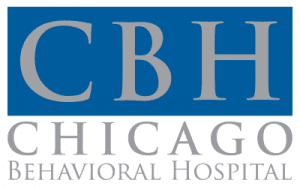Stories Of Success
We are excited about the stories of success our patients, their families, and our professional partners are sharing. Chicago Behavioral Hospital is celebrating it’s the second year of serving the Chicago-metro area and we are proud of the impact the programs and services are having in our community.
Here are a few of our success stories.
From Toni, Adolescent Program Patient’s Mom
Checking your loved one into a behavioral hospital has to be one of the hardest things to do, you hope and pray they will receive good care. I would highly recommend this hospital (and have already) to other families looking for a safe place for their loved one that may need help.
From the first moment I walked in Chicago Behavioral Hospital I was greeted warmly by your front desk ladies. Meeting other staff member such as Jose, just got better, they truly care about the adolescent. It seemed like everyone worked together; including the substance abuse therapist in working for aftercare for my son. They immediately asked me about my son and what they like to do, and how they cope best. We worked together as a team to get my 16 year old son in better place. They helped my son with school work, the teacher connected well with my son as well. My son is an elite athlete, having the gym on site was extremely helpful, it gave my son some confidence back by while playing games against some of the staff. Other amazing staff I want to give a shout out to are Erica & Armando .. but truly I loved everyone and so does my son.
From Richard, Director of a local counseling center
As the director of a local counseling center, I have referred several clients to CBH and all of them have told me their experiences have been wonderful. Everyone I have had contact with at CBH has been very friendly and easy to work with. I have toured their facility and was impressed with how much effort they have put into making a comfortable environment for their patients. It didn’t feel like a hospital at all! I’ve appreciated their attention to the little details and how they are trying to create a pleasant and helpful treatment experience for all.
From Juan, RN
I’m a nurse who also works for a busy interdisciplinary psychiatric practice and we have made several referrals to CBH. The service they have given us and our patients has seemed excellent. Our patients have come back saying positive things. We had one situation lately, which is always a sad one, where we had to send one of our older adolescent patients to the hospital who has come down with the first episode of a major psychiatric disorder. This type of situation is always hard on everyone; the patient, their family, and even the mental health practitioners who have to break this first news to everyone. I found Chicago Behavioral to be quite sensitive to the situation and to respond to it wonderfully. This was a Hispanic family and they gave special attention to them, educating them to become aware of what their son was going through. They particularly praised a manager named José who spent a lot of extra time communicating with the family in Spanish and helping get them through the trauma of knowing that their son had come down with a psychotic illness. The family was very happy with how they were treated. There was good communication with us as the outpatient care givers during the process, and the coordination of care and setting up follow-up appointments with us was also good. We also found the social worker named Stella to be very invested and caring of this young man. Just a thank you to CBH and a recommendation to others that they have been great to work with and are a great new treatment resource for the Chicago area.


